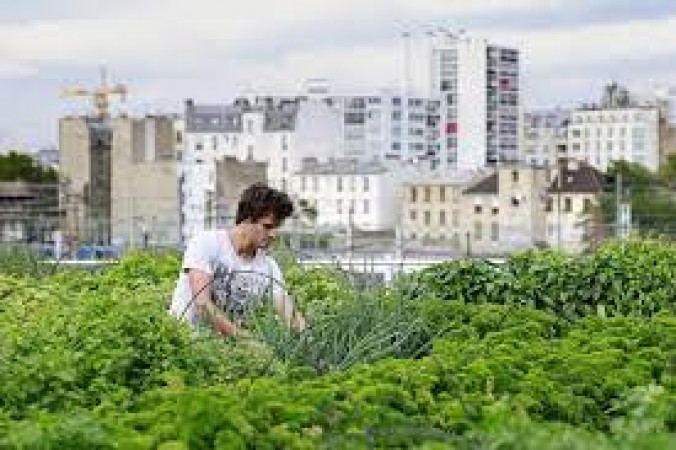
Urban gardening, once a niche concept, has transformed into a powerful movement, taking root in cities around the world. It refers to the practice of growing fruits, vegetables, herbs, and ornamental plants within urban environments, such as rooftops, balconies, and community plots. This article explores the rising popularity of urban gardening and its significant contribution to local sustainability.
The Benefits of Urban Gardening:
One of the primary benefits of urban gardening is the access to fresh and nutritious produce. By growing food locally, urban gardeners reduce the reliance on distant, large-scale agricultural operations, thereby lowering food miles and carbon footprint. Furthermore, urban green spaces contribute to improved air quality, mitigating the impacts of climate change.
Overcoming Challenges in Urban Gardening:
Urban gardening comes with its fair share of challenges. Land scarcity and limited space are common obstacles faced by urban gardeners. Soil quality and contamination also pose significant concerns. Nevertheless, innovative techniques, such as container gardening and vertical farming, have emerged as solutions to these challenges.
Innovative Techniques for Urban Gardening:
Container gardening allows individuals to grow plants in pots and other containers, making use of any available space. Vertical farming involves cultivating crops on vertically inclined surfaces, maximizing land utilization. Hydroponics and aquaponics systems, which utilize water and fish waste to nourish plants, are other effective methods.
Social and Community Impact of Urban Gardening:
Urban gardening fosters a sense of community and brings people together. Participating in gardening activities promotes mental and physical well-being, offering a peaceful escape from the hustle and bustle of city life. Additionally, community gardens play a vital role in addressing food insecurity and poverty.
Urban Gardening and Local Sustainability:
By growing food locally, urban gardening reduces the pressure on rural agriculture, which often faces challenges such as water scarcity and land degradation. Urban green spaces also promote biodiversity and ecosystem balance, essential for maintaining a healthy environment within cities.
Urban Gardening Policies and Initiatives:
Governments and local authorities have recognized the value of urban gardening and are increasingly providing support and incentives for such initiatives. Collaboration with local businesses and non-governmental organizations (NGOs) has further bolstered the growth of urban gardening. Educational programs and workshops educate aspiring urban gardeners about best practices.
Success Stories of Urban Gardening:
Case Study 1: City-Integrated Farming in Singapore Singapore's innovative approach to urban gardening includes integrating farming into the urban landscape. Rooftop gardens and vertical farms play a significant role in supplying fresh produce to the city's inhabitants.
Case Study 2: Community Gardens in New York City New York City boasts a vast network of community gardens, providing residents with the opportunity to grow their own food and beautify their neighborhoods.
Case Study 3: Rooftop Gardening in Mumbai In Mumbai, the practice of rooftop gardening has gained traction, allowing city dwellers to cultivate greens and vegetables in the limited space available.
The Future of Urban Gardening:
The future of urban gardening looks promising. As cities continue to expand, urban gardening will become even more critical to ensure food security and sustainability. Integrating urban gardening with smart city concepts, such as using data and technology for optimal plant growth, will shape the future of agriculture. Urban gardening has emerged as a powerful force driving local sustainability in cities worldwide. Its benefits reach beyond just providing fresh produce, with positive impacts on the environment, communities, and individual well-being. As cities evolve, urban gardening will play an increasingly pivotal role in creating greener, healthier, and more self-sufficient urban environments.
The Rise of Artificial Intelligence: Revolutionizing Industries and Reshaping the Future
T-Mobile EDGE (Enhanced Data rates for GSM Evolution) - A Legacy in Mobile Data Technology
Lightning McQueen Roars Back: A Detailed Look at Disney and Pixar's "Cars 3